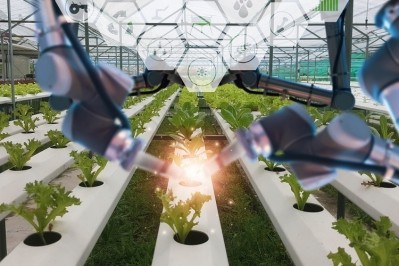Rise in success of English wines signals industry shift

When thinking of European wine producing countries, many will list France, Italy, Spain, and maybe even Germany, straight off the bat. By contrast, it’s likely few would mention, or even think of, England as a wine producing nation. However, that’s been changing for some time now, and while the old guard of winemakers remain popular with consumers, English winemakers are hot on their heels. In fact, sales are shooting up, with financial firm, UHY Hacker Young, reporting that turnover of top English wine producers has risen by 15% in the past year alone. And they’re catching the attention of the experts too, sweeping the board at awards ceremonies.
“To say English still and sparkling wines are winning awards is an understatement,” said a spokesperson for The English Wine Collection. “They’re dominating the New World wine awards. One English sparkling wine (Hambledon Classic Cuvée NV) achieved world recognition, causing a media frenzy, when it scored more points in a blind tasting than those from Pol Roger, Verve Clicquot and Tattinger.”
So why have English wines become so popular?
How has England become a winemaking success story?
Well, the first reason is that they’re not actually as new as many may believe. While industry professionals and consumers might have only discovered them in recent years, English wines have been around for far longer.
“English wines have been part of the beverage market for around 30 years, with vineyards like Chapel Down having been established in the 1970s and Gusbourne vineyard in 2004,” James Simmonds, partner at UHY Hacker Young, told FoodNavigator.
So, while it may appear as though it’s achieved overnight success, the reality is, as always, somewhat different. However, now that English winemakers have established themselves, and proven to be successful, the market is beginning to expand across the UK.
“In more recent years, UK winemakers have begun to attract significant international attention, particularly for their sparkling wine,” says Simmonds. “That growth in popularity for English wines has led to new areas of the UK venturing into the market, with places like Wales experiencing growth in the number of vineyards planted.”
But while this is great news for the UK wine industry, it does point to a more concerning environmental development – climate change.
“In the UK, this rise in temperatures is allowing for suitably warm conditions that allows grapes to fully develop, ensuring a higher quality harvest,” says Simmonds.
And this change in climate will continue to impact winemakers, across Europe, both positively and negatively. Leading us to the question, which other countries are likely to emerge as the winemakers of the future? And what is the future for the industry as a whole?

Which countries are set to emerge as the winemakers of the future?
Along with the UK, other nations are finding they’re also able to grow grapes, and produce their own wines, where they might not have previously been able to do so.
“Most of the ‘new’ wine producing regions are in the northern hemisphere as we have greater latitude to expand into,” Dr Alistair Nesbitt, CEO of winemaking consultancy, Vinescapes, told FoodNavigator. “There is significant expansion occurring in parts of Canada, China, Belgium, Poland, Sweden, Denmark and around the Finger Lakes in the USA.”
Winemakers in existing markets however are changing where they grow to work with the changes in climate.
“We’re seeing shifts to higher elevation viticulture in parts of Chile and Argentina, opening-up and creating new regions,” says Dr Nesbitt.
And what’s more, we’re seeing the emergence of new varieties of grapes, creating new opportunities for winemakers.
“Climate change, and particularly warming during the growing season, combined with a range of different and sometimes new grape varieties, is transforming previously non-viticulture areas,” says Dr Nesbitt.
But these aren’t the only new trends emerging in the world of winemaking.
What are the new trends in winemaking?
Food and beverage producers across the industry are deeply concerned about the effects of climate change, and winemakers are no exception. As a result, growers are working to implement and improve sustainable practices.
“We’re seeing a greater uptake of sustainability initiatives, including regenerative viticulture,” says Dr Nesbitt. “This positive trend is being driven by both the market and producers who want to protect their land and make the best wines possible.”
There’s also a move towards genetic modification of crops to help to avoid loss through disease.
“We’re seeing new disease resistant varieties playing a bigger role in new plantings and wine styles,” adds Dr Nesbitt.
And winemakers are not just innovating with grapes. They're also branching out into other ingredients, including blueberries, and even cocoa. Just recently, beverage brand, LŌV Ferments, launched its cocoa wine, named ‘26’, which is made using cocoa mucilage, the pulp which surrounds cocoa beans in the pod.
“Great wines are not only based on the grape but on the process,” said Nicolas Lavalliere, CEO and co-founder of LŌV ferments, while speaking at the Desafía FoodTech event in London. “We believe that it’s the fermentation that creates the beverage.”
The wine industry will likely change significantly in the coming decades, as climate change alters the current growing landscape. We address this in part two of our European wines feature, looking at the threat to established winemaking regions. We also look at what more can be done to protect the future of European winemakers.
















